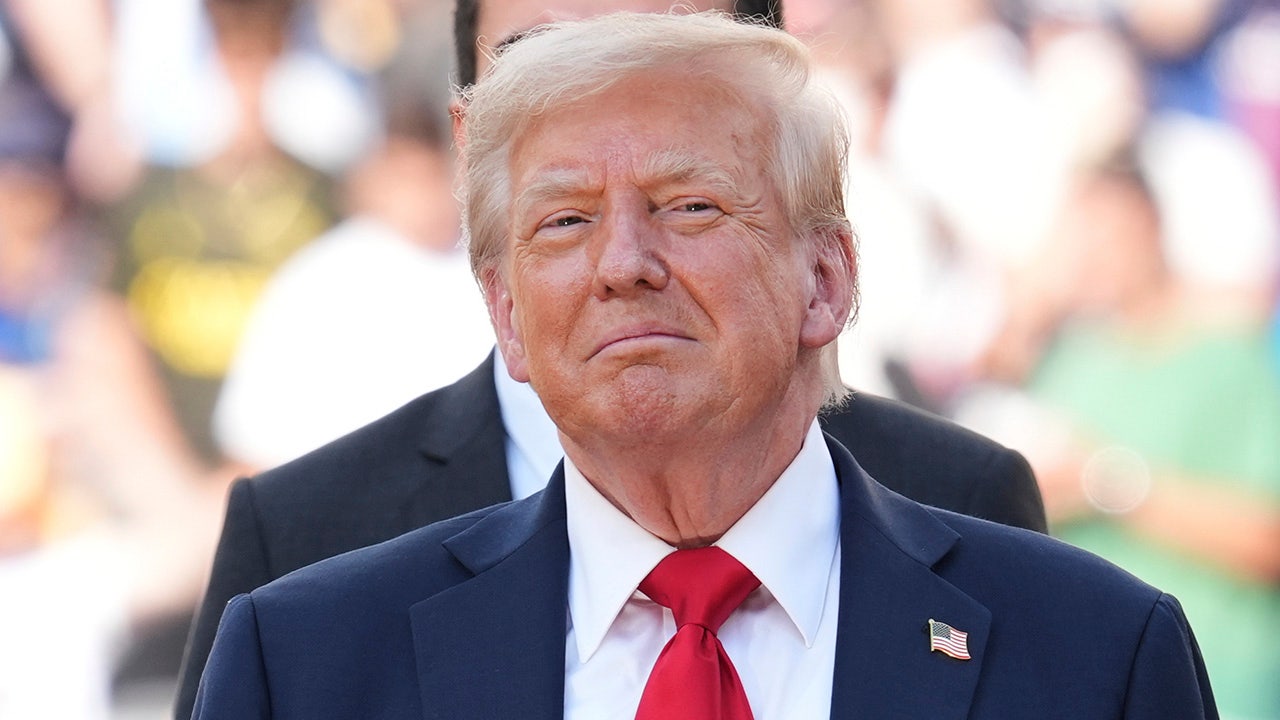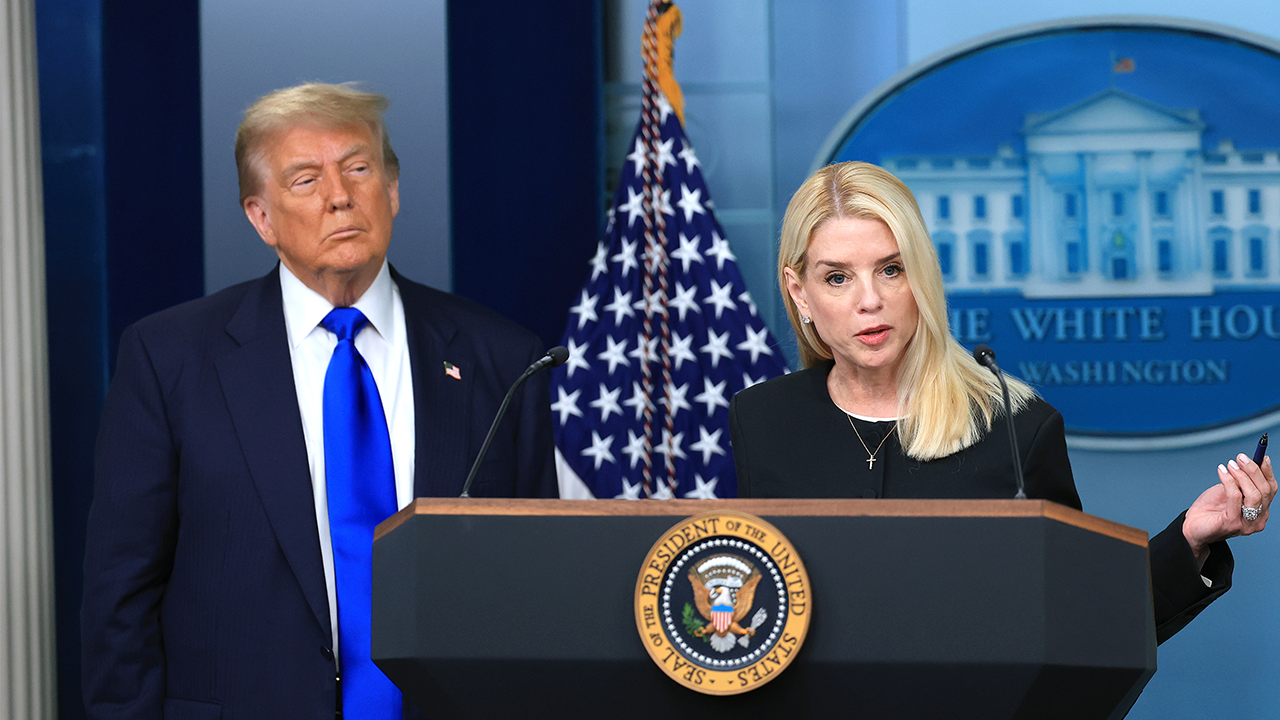Education
Video: Protesters Scuffle With Police During Pomona College Commencement

new video loaded: Protesters Scuffle With Police During Pomona College Commencement
transcript
transcript
Protesters Scuffle With Police During Pomona College Commencement
Pro-Palestinian demonstrators tried to block access to Pomona College’s graduation ceremony on Sunday.
-
[chanting in call and response] Not another nickel, not another dime. No more money for Israel’s crime. Resistance is justified when people are occupied.
Recent episodes in U.S.

Education
Video: Opinion | The ‘Little Epstein Theory’ vs. ‘Big Epstein Theory’

So first up guys, we’re six months into the Trump administration. So I want to know your mood – hit me. Yeah I mean, it’s a disaster. And it’s everything I thought it was going to be, which is terrible. It has been a week of ups and downs for the Trump administration. So I want to talk about an up, which is the huge expansion of President Trump’s power this week, specifically the Supreme Court’s order that he can effectively dismantle the Department of Education. But there’s also been a serious and quite spicy downer. And that is the ripping apart of the MAGA right over the Epstein investigation. And as always, I should say that we are recording on a Thursday afternoon, so who the heck knows where things will be by the time we reach your ears. So let’s jump in with the Epstein uproar. First, to recap for people who have not been following this drama, Trump has been telling his supporters basically, drop it. Drop this obsession with the Jeffrey Epstein investigation. Epstein is, of course, the financier who died in jail in 2019, some say mysteriously, while awaiting trial on sex trafficking charges. So for years, Trump and many of his supporters have been Fanning the flames and clamoring for the release of undisclosed Epstein files, including a so-called client list. But now Trump has totally reversed course. Now, Jamelle, before I let David take us down the MAGA wormhole, do you got a quick reaction to this backlash. Do I have a quick reaction to this backlash. I’ve just been like watching it with real fascination. I wasn’t following this too much either, and my native anti conspiracism led me to be like, this is just a bunch of nonsense, but I am. I am genuinely fascinated by two things. The first is how this is the thing that seems to be fracturing the MAGA coalition, and I suppose it’s a matter of live by the conspiracy, die by the conspiracy. The second thing is that if you were to envision a response to any accusation that made it seem like you were guilty. I can’t think of a more apt example of it than how Trump is behaving right now, right. Like, Trump is behaving exactly like someone who is trying to hide something, telling people that it’s a hoax. He’s called it. He called it the Russia hoax, which for me at least is like, oh, well, it’s true then, right. Saying, it’s the fault of the Democrats. It’s the fault of fall of Biden. Everything the way he is visibly panicking just makes it seem as if Oh well, maybe. Maybe it’s not a crazy conspiracy theory. Maybe there’s real stuff here. David, I know you’ve been following this. How big a deal was it. Come on y’all. So here’s the question. You say you wanted to go down the rabbit hole. Do I want to just walk. Do you want to walk into the opening of the cavern and shine a torch around, or do you want to go actually spelunking? Because this thing is deep. Head first. Just go. Let’s be. Let’s be a little bit. We’ll do a middle range. So I think the way to think about this is to think about Epstein in two contexts. We’ll call them the little Epstein theory and the big Epstein theory. So the little Epstein theory is, look, this is a very real crime. Unlike a lot of the stuff you’ve heard of from before Pizzagate and all of this other stuff. Very, very real crime here. The grooming and preying on hundreds and hundreds of young women, including girls as well a teenage girls. There’s a lot of very unanswered questions. So, for example, he died by suicide. How did that happen. How was that allowed to happen. He was watched, right. He was heavily watched. Yeah He was one of the most well connected men in the world who a lot of very famous people flew on his jet, went to his private island, partied with him, including one Donald J. Trump, by the way. So what was the relationship between all of these very famous people and his predation. Was there any relationship. So there’s a reason for natural curiosity. So that’s little Epstein theory. But in a lot of MAGA, it’s really what they’re really focused on is what you might call big Epstein and big Epstein. Theory is the thinking man’s version of QAnon is a way to think about it. It is essentially that the Epstein story is the key that unlocks the whole globalist pedophile conspiracy, that if you really knew the whole Epstein story, it would be he was working as an agent for foreign governments, that he was blackmailing people at scale, that he has an enormous amount of information about World leaders, financiers, et cetera. And so this is of fits very neatly with an overall MAGA narrative that the ruling elite is so fundamentally depraved and corrupt that they would either participate in or excuse or cover up massive scale pedophilia. And so one of the reasons why this became so much of an urgent issue in MAGA is when you drill down for some people within the MAGA movement, this is why they’ve stuck by him for years is because they believe he’s the guy that they believe is going to crack open this whole thing. So if you actually believe that your political opponents are running a global pedophile ring and Donald Trump is the man, some of them believed to be prophesied to break this apart, you’re going to overlook a lot of stuff about Donald Trump. A lot of stuff is just going to be less important than breaking up the global pedophile regime. And now he’s turning around and saying, essentially, if there’s anything in there, Obama planted it, or Biden or Clinton or whatever, it is massive cognitive dissonance, because this is the reason he’s disrupting the very reason that a lot of people supported him. Yeah Jamelle had a good point, which is that I’ve been on Truth Social, reading his posts and then reading the comments, responding to them. This is my hobby this week. Better hobbies. Michelle, you need better hobbies. Emotionally speaking, I’m. I’m not doing well in there. It’s very dark. But Trump just set out to insult anybody who would have questions about this. And do we think he just doesn’t have a different playbook. I mean, he just he’s going to go to the same sheet music he’s always sung from. And he just he assumes it’s going to work. I think you’re right to suggest that he really only does have one playbook. I mean, kind of the remarkable thing about Trump after all these years is that he really is very predictable, right. He’s not he isn’t this enigma of a human being with a lot going on internally. You can predict what he’s going to do very reliably. And in this case, he’s accused of something. He denies it. He tries to turn the accusation around. He tries to discredit the accusation, and he’s just following the typical playbook. I think the issue, as David points out, is that this is one of the rare instances for him where he really is directly going at of a core set of assumptions, beliefs, suppositions among its supporters that they can’t simply square it with their support for him. And so if they see him as this avatar of vengeance against the global pedophile ring, and he’s refusing to act in a way that is commensurate with that, I think the response, which makes total logical sense on their part is to say, well, well, O.K, what’s up with Trump. I will say one thing I find strange about all this is that part of the reason I kind of have been ignoring all of this is that I thought, I thought everyone I thought they’d all priced in. The fact that Trump is publicly was publicly very close to Jeffrey Epstein, publicly has been accused of inappropriate behavior. All this stuff is just like known fact about Trump. So my I going has just been well, they already know that he’s iffy. But what I’m beginning to realize is that maybe they don’t. Maybe they have no idea that this guy is a sex pest. Well, the thing that has been fascinating is how especially among Republican Congress members, they’re framing it as not whether or not Trump did anything or was aware of anything. But this is all about accountability. It’s all about transparency. They’re arguing that, of course, the administration should put some information out there, because that’s what the Republican Party and the Trump administration has been promising is transparency, which, I mean, I find that amusing in and of itself. But sure, whatever gets you through the day, David, how do you see the people like the MAGA faithful justifying standing by Trump in this moment. Are they just saying I can’t possibly be true. That’s a really good question. And I would say this is the first time. Look, Trump has lied to MAGA lot. He’s lied to MAGA ton. But generally when Trump lies to MAGA, he’s telling them something they want to hear. So, for example, if he’s lying to them about there’s nothing to the Russia investigation. They want to hear that if he’s lying to them and saying the election was stolen, they want to hear that. This is the first time, really that I can think of that he has lied to them and contradicted core elements of their worldview. But it isn’t just that they have a defeated worldview, it’s that they are now faced with just two terrible options. One, the whole conspiracy is correct and Trump’s in on it. Or they were lying to us all along. So what’s going on here. And so how are people reconciling themselves to it. Michelle, I think it’s a answer is really, really simple. At the end of the day. MAGA is going to turn to all of its people and just say, whatever you do, you can’t help the left. You can’t undermine Trump, because if you undermine Trump, that’s what the media wants. That’s what the left wants. So you’re going to begin to see a lot of this. Well, whatever else Trump is, the left hates him. So you have to stand by him. And a lot of this is going to drill down to ultimately why did people support Trump. Why have they been with him. And if the ultimate answer is because he hates Democrats and fights Democrats, then they’ll probably keep on clinging to Trump. If their ultimate answer is, I genuinely, really thought he was going to be God’s angel of vengeance against the global pedophiles. Then you might see some cracking in that support. And so let’s not forget this he is a lame duck president. He’s not eligible to run in 2028. There’s going to be a successor. This could be some of the early jockeying that you see as to who’s true MAGA after Trump goes away. So you’re going to see some internecine fighting over this as well. That’s very much related to the order of succession in the royal court, so to speak. So, Jamal, it’s also been interesting to see what has been stirred up on the left, people talking about maybe there is something to see here and a little bit of joining the conspiratorial thinking, I guess. What have you been looking at with interests on the left of this whole discussion. I mean, I think it’s interesting that elected Democrats really some are treating this a legitimate scandal and not just waving it away as a distraction, that the usual language Democrats have adopted for not doing anything. I think A.O.C. made note that there was no surprise that someone who was a rapist would be hiding this stuff. I think Gavin Newsom has said things. Jon Ossoff, the Georgia Senator, has said stuff along these lines. I mean, you’re beginning to see mainstream Democrats treat this as a live political issue, which I think is the right thing to do. You’re being given a clear opening to fracture your opponent’s coalition, to make the president who you are opposed to be very uncomfortable. It would be political malpractice not to indulge this, not to fan the flames of conspiracism here for the sake of hitting at your opponent. And although it does, I think, seem quite unseemly, I think one thing that’s always worth remembering is that American politics has never been a particularly seemly place to begin with. And so if you are of the view that Democrats should be more aggressive in their opposition, this is basically what that looks like. One of the most fascinating responses that I’ve enjoyed. So there have been conservative lawmakers like Marjorie Taylor Greene, who has a reputation for loving her, some conspiracy theories, and Lauren Boebert same who have been very outspoken about this being a problem. And I think it was Boebert, in fact, who wants maybe Matt Gaetz to run a special investigation. I was like, O.K, O.K, fox meat henhouse. I’m speechless in this regard. But that would I have to say it would be interesting. I would not be a dull moment. If we’re looking at who might have an interest in keeping this alive. Have you has anybody popped up that you think oh, I can think of somebody whose initials are Tucker Carlson. Oh, there we go. I hadn’t even Megyn Kelly. There are a lot of people with very, very, very large followings who hope to continue to have very, very large followings after Donald Trump is gone, who won the position themselves as more or less independent voices. And so what we’re going to actually see here is an interesting breakdown. We’ve often used the term influencer to describe a MAGA influencer to describe a lot of these people with big voices. That’s the wrong word. They’re more like famous followers than they are like influencers. Because the instant that they depart from Trump, traditionally, these quote unquote influencers find out they had no influence at all. But somebody you can go through, name after name who’s kind of calling for answers in this circumstance. And look, the charitable explanation is they just want answers. That’s the charitable explanation. The less charitable explanation is there’s also some jockeying for position going on. So look who folds and look who doesn’t fold. And the people who don’t fold either. Maybe they have some integrity about this matter or some combination of. They also want to be more independent of the rest of MAGA. They want their own following. Yeah the strategery here goes. Strategery Yes. All right, so now let’s go ahead and flip it. We’ve talked about the administration’s very bad week. Let’s talk about its win, which is a pretty interesting victory in the Supreme Court. I’m sure more popular topic in the White House than the Epstein files. He made it clear from the start that he has no love for the Department of Education and wants to Ax it, which is not to be fair. It’s not an uncommon Republican dream. He’s not the first presidential contender who wanted to do this. Now, he signed an executive order saying as much project 2025 called for this. And this week, the Supreme Court said yeah, sure. Why not. The president can unilaterally abolish a federal agency that was created by an act of Congress. Are either of you surprised. Am I surprised? I don’t know. I’m surprise shocked. These are no longer feelings and emotions that are relevant to me anymore. You’re burned out. Yeah, when I read the news, I’m just – I was struck by two things. The first is that, the court had lifted an injunction on basically like mass firing at the Department of Education, and it did so without any kind of explanation, no explanation of why this was appropriate. And my immediate thought was, I don’t understand the rationale. Like, if I’m looking at this, if I’m assuming the court is acting in good faith, it does not make sense to me to allow the president to move forward with a radical and expansive assertion of authority. It’s actually contested whether or not the president has the authority to unilaterally remove civil servants without any kind of congressional authorization. And secondly, typically when the president or is trying to advance a policy unilaterally like this, and they’re sued it, typically you let the lawsuit, you let the entire legal process play out from fact collecting in a district court judgment all the way up to the Supreme Court for the simple reason that while you’re waiting, you just have the status quo. And the status quo isn’t some intolerable offense. It’s just the way things have been working. And I don’t understand if I’m looking at this, if I’m saying the court is acting in total good faith, I don’t understand the rationale of not letting the status quo stand while you let this play out in the courts. So, David, before we get further into this, I want to step back then for a second and talk about this so-called shadow docket, which it’s a term used to describe this court’s emergency docket when urgent decisions are made much more quickly than in regular court session. And they can come with little or in this case, really zero explanation. Do you what is your thought on what the rationale for this being on the shadow docket would have been. And kind of do you buy the argument that this was needed to be there. Yeah, there’s a very live debate over what to call this thing that you’re calling the shadow docket. I think a word, another word some people have chosen is emergency docket. In other words, what do you do when cases are unfolding very quickly and they’re of great importance. This is not something that for a long time, the Supreme Court was known for doing, is taking up cases that were emerging in real time that were very, very important that the Supreme Court docket was known for a long time to be pretty slow. Well, that has changed in recent years, in part because the combination of the total collapse of Congress’s any effective lawmaking body and the expansion of presidential authority to fill that gap, has meant that we’ve had a lot of litigation that erupts immediately from executive actions. So, for example, nobody contests that Congress could say, pass a law tomorrow doing a reduction in force of percent of the Department of Education. Congress can absolutely do that. The question is, can the president do that. And that leads to immediate litigation, litigation that gets really important. And from that standpoint, I like the emergency docket. And I’ll tell you why I like it. For a long time, the Supreme Court was so slow in taking up cases that you would often just hit these slam on both feet of the brakes when you would get to the Supreme Court, when you would actually need the Supreme Court to rule, you would actually know for a fact. For example, the Supreme Court’s going to rule on this. Like, why aren’t they taking this now. And so there are circumstances where these emergency rulings or shorter term rulings, I think, are completely in keeping of with the urgency of the moment. Now, where do I have a problem. I have a problem in this instance, for example, because there’s no majority opinion. So here you have a very important ruling. You have the three liberal justices in dissent, and they have a stinging dissent. And you’re left filtering through what could be the majority’s reasoning, because there’s a small version of this ruling and there’s a big version of this ruling, and I can articulate both of them, but I don’t know which is which, because we don’t have the majority. They didn’t give it to us. And so that’s so we’re left with saying, O.K, did he effectively shut down the Department of Education. Well, I could argue no, because that wasn’t the issue in front of the court. The issue in front of the court was, do we intervene immediately in this reduction in force. That’s a small version of this ruling that all they’re doing is they’re just saying we’re not saying you can get rid of the Department of Education. We’re saying that’s a small version. A big version would be, hey, civil service protections can be swept away. Presidents can effectively shutter agencies just by draining them of people. That’s a big version of it. Which one is it. We don’t know. And I think that’s a big problem because as you both said, I mean, shutting down the Department of Education is not a radical Republican goal. This is something that’s been talked about since the Reagan era. It’s how it is happening that is so. Disturbing and how it is being upheld is so puzzling. Just to add to that, I mean, I would think that the Supreme Court has a responsibility to explain its reasoning to the public. To me, the decision to refuse to explain which this is what this feels like. Not so much like we’re not going to write one. But just a refusal. We don’t have to. We don’t need to. Is the court mistaking the pageantry around it for some actual authority over the public at large, the court acting as if it isn’t a servant of the public at large. But it is. It’s a servant of the Constitution. It’s a servant of the public, of the people who imbue their sovereignty into that Constitution. And so the court simply deciding it’s not going to explain something that if it is as expansive as some critics think it might be, constitutes a fundamental reorganization of what the president can do. If the president can dismantle congressionally authorized agencies through personnel that transforms the balance of power in the American government, right. Yeah, that’s what the president is asserting that the president that the executive removal power is so broad in exists in this extremely rigid vision of separation of powers such that Congress has no say whatsoever over the conditions of employment in the Civil Service. And it’s all under the president. If the court thinks that this is the thing that exists, the court, the court has an obligation to tell the public. We have a right to know. And the court’s refusal to explain is incredibly disturbing in that context. So you guys had mentioned the minority dissent on this. Justice Sonia Sotomayor was making this exact point. She wrote that, quote, the majority is either willfully blind to the implications of its ruling or naive, but either way, the threat to our Constitution’s separation of powers is grave. So you have the dissent out there. You have no explanation from the majority as to its reasoning. David, doesn’t this fuel concerns about the court and do damage to its reputation as its partisan leanings? It creates an empty space into which people’s pour their hopes and their fears and that’s not good. So let’s talk about the hopes element of it. So MAGA thinks a lot of people in MAGA because they’re taking the maximum reading of this, think that this is a permission structure for Trump to do as he will do what he wants to do with federal agency. I think that’s in all likelihood, although I’m not sure because the court’s been silent in this instance. I think that in all likelihood, that’s the maximum reading is the wrong reading of this. And so what happens when the court actually does rule on the merits, as it will eventually, sooner or later. And let’s suppose it disappoints MAGA. Well, then you’ve got all the braying and yelling from MAGA that the court’s illegitimate, it’s defying the duly elected president, et cetera. But then, on the other hand if you’re concerned about this ruling because of the absence of reasoning, you don’t really how to respond to it. You don’t know what the core arguments are that you need to make. You don’t know how to adjust your argument in the courts below. These are very, very important things. And so while I can absolutely make a case that maybe injunctions aren’t the right form of relief in the case of termination, maybe in some circumstances, in some circumstances, what I cannot make a case for is not saying anything. Yeah people people talk about justice. Chief Justice John Roberts, wanting so desperately to protect the reputation of the court as an independent branch of government, this just does not seem to lend itself to helping with people’s concerns. I say David mentioned something that’s very important as well. What we have are district court judges appointed by Democrats and Republicans, appointed by Trump, Obama, Biden and Bush. Reagan in some cases. Working in good faith to try to figure out what the law is, figure out how to move forward in the face of expansive claims of authority by the administration. You have district courts trying to work it out on the ground, and you have the Supreme Court intervening and then not explaining what are the district courts supposed to do. This is the administration has been engaged for months in this attempt to argue that the president has no obligation to obey the rulings of district courts and only needs to listen to the Supreme Court, which is not the case by intervening and issuing decisions that essentially allow the administration to move forward with its plans, whether or not they happen to be lawful. The Supreme Court is basically affirming this. They’re saying Yeah, you don’t have to listen to the district courts. We’re the only ones you have to listen to. And what I don’t think that the conservative majority understands, or maybe they’re willfully ignorant of it. And this gets to Sotomayor’s dissent, is that at a certain point, you’re going to dishabituate the administration to not wanting to follow any court. And you can hope you can think to yourself, oh, they’ll listen to us when it really comes down to it. When it really hits brass tacks, they will listen to our ruling. But I wouldn’t make that bet. If I were in that position, if I were on that court, I wouldn’t make that bet. But the Supreme Court seems just totally indifferent to what is going on in the lower court level, and I find it very disturbing. I to my mind, the Supreme Court is leaving these judges again, Republicans and Democrats, liberals and conservatives, leaving them to hang out to dry. David, you’re nodding thoughtfully. Well, I’m going to say the thing that’s troubling to me. And look, I have defended and will continue to defend the judiciary. Amongst our three branches of government, I maintain that it’s our best functioning branch of government. I still maintain it’s the best functioning branch of government. I disagree with the decision not to write here. And the thing that is frustrating. Another thing that’s frustrating about it is in some ways, the court is not being consistent here, because it is not. It has rebuked Trump in this term. It has rebuked him pretty decisively. It has expressed concerns for the administration’s willingness to defy precedent. At the oral argument in the birthright citizenship case, Justice Barrett was holding the thing the administration’s feet to the fire on complying with precedent. There’s obvious concerns and other opinions. The Supreme Court has said that immigrants get due process for or before they’re going to be deported under the Alien Enemies Act. They have issued affirmed rulings to for example, get Abrego Garcia to facilitate his return. And all of that was explained and you could read it. And so yeah, once again, I could look back at this last term of the Supreme Court and I could point to you time and time again that court rejected a MAGA legal argument or would not take or rejected a Trump argument. So I do not think that this Supreme Court is in Trump’s pocket at all, but I cannot justify not explaining this. I just no matter which way I look at it, I just can’t get there. I think there should be a conspiracy theory that we start to explain it all, taking us back to our opener. I think that’s the only there’s got to be some conspiracy theory. So before we go, it is the middle of July. It’s the summer. Let’s go a little lighter. Let’s go off topic, and I want both of you to give me something that has given you some delight right now. All right, I’ll go first. I bought a new camera. People who, I guess, read my newsletter, the New York Times’ newsletter you should read, that will know that I love photography. And I bought a new camera. What’d you get. What’d you get. It’s called a – I’ll just show it. It’s right here. It’s called a Mamiya Six. It was first manufactured in 1989. Stock manufactured in 1995. It is a medium format rangefinder. It’s not. What you see is what you get. It’s you look through a separate viewfinder. But I love it. And the reason I bought it is because I’ve always wanted one of these. Just because it’s cool. It’s cool. It’s so cool. But also for taking you with me when I travel. And if you look behind me, I feel like you can see on frame. I have a lot of cameras behind me. That’s your thing. That’s my thing. All right, David, so you’re up. What do you got? What’s delighting you. Mine is a lot less sophisticated. I’ve got two recommendations that have given great joy. One is a Netflix show that a lot of people talked about called “Department Q” and you might say, not another British crime drama. I would never say that. I say another British crime drama. Thank you. This one about cold cases starring a really Motley collection think of it as the Mos Eisley Cantina of British detectives. And the. The lead guy is very grumpy and often not in an endearing way. But it is really good and the constellation of characters around him? Fantastic. And then the other one is the show called poker face, which stars Natasha Lyonne, who I love. It is a delight. I mean, the premise is just pretty simple. There’s a kind of down on her luck woman who has this unique gift that she can always tell that somebody is lying. And she has the worst luck in the world. Michelle, as everywhere she goes, somebody gets murdered. This shows how really well done and funny. So both of those are giving me a lot of joy. I also poker face a lot. I do. I appreciate the kind of Colombo style. Yeah, not really. She’s such a schlub. Mystery of the week. But like you’re just seeing how this. Yeah, this kind of schlubby but compelling person. Pursues this. So mine is a very different direction, which is it’s summer in Washington, and this is when you get boatloads of tourists with their families here. And in some ways, it’s fun to complain about them, especially when they’re in a rental car in front of you in the traffic. Time but it’s also fantastic to just see, no matter how ugly it gets on the political scene, people still come to the nation’s capital. And I was on the Hill earlier today interviewing a Senator. And there were people up there looking hot and confused because it is really brutally hot. It’s like 105 heat index today. But nonetheless, they were persisting. They were out with their maps and their water bottles, and it just made me feel a little bit better about the state of the country, I love that. All right. So we’re going to leave it there. David, Jamelle, thank you very much as always. It was fun and I will see you next time. See you. Thanks so much, Michelle.
Education
How Trump’s crackdown on Harvard and other universities is affecting the world

Universities are an easy target for right-wing populists. Polls show that a lot of Americans consider them too liberal, too expensive and too elitist, and not entirely without reason. But the fight between the Trump administration and Harvard is something more: It has become a test for the president’s ability to impose his political agenda on all 2,600 universities in the United States. Students, professors and scientists are all feeling the pressure, and that could undermine the dominant position that American science has enjoyed for decades.
What does that mean for the world?
European countries are wooing U.S.-based scientists, offering them “scientific refuge” or, as one French minister put it, “a light in the darkness.” Canada has attracted several prominent American academics, including three tenured Yale professors who study authoritarianism and fascism. The Australian Strategic Institute described this moment as “a once-in-a-century brain gain opportunity.”
In the mid-20th century, America was seen by many as a benign power, committed to scientific freedom and democracy. It attracted the best brains fleeing fascism and authoritarianism in Europe.
Today, the biggest beneficiary could be China and Chinese universities, which have been trying to recruit world-class scientific talent for years. Now Mr. Trump is doing their work for them. One indication of the success of China’s campaign to attract the best and brightest is Africa, the world’s youngest continent. Africans are learning Mandarin in growing numbers. Nearly twice as many study in China as in America.
Could America gamble away its scientific supremacy in the service of ideology? It has happened before. Under the Nazis, Germany lost its scientific edge to America in the space of a few years. As a German, my brain may wander too readily to the lessons of the 1930s, but in this case the analogy feels instructive. Several of my colleagues covering the fallout from the crackdown on international students and researchers pointed to Hitler’s silencing of scientists and intellectuals.
No one region can currently replicate the magic sauce of resources, freedom, a culture of risk-taking and welcoming immigrants that made America the engine of scientific innovation. But if it tumbles as a scientific superpower, and potential breakthroughs are disrupted, it would be a setback for the whole world. I spoke to my colleagues who are reporting on this, and here’s what I found out.
Higher education
There’s going to be fallout. We’ve talked to researchers at Harvard whose funding was cut, including those working on tuberculosis, and another who engineers fake organs that are useful in the study of human illnesses. There have been all sorts of different projects disrupted that could have led to some major breakthrough. When research is interrupted, there is no way of knowing if it would have led to a breakthrough that the world will now have to do without. But the impact might actually be more heavily felt on small regional public universities that had already lost some of their public funding and were relying heavily on international students to pay the bills. So if the United States is continually viewed as an unwelcome place for international students there will be ripple effects throughout the system.
Politics
It’s smart to think about this in terms of political calculus instead of ultimate goals. It matters little to the Trump administration if it’s dragged into court over and over again, or even how many of those lawsuits it wins. They view Harvard as an avatar for all universities that have become incubators of liberalism and are hostile to conservatives. And what better university in the world to send a message that, in their view, slows down the march of liberalism in universities. That would be a major victory for this administration. If Trump officials have any measure of success, it will be whether they can create a roadmap for imposing their political agenda on the other 2,000-plus colleges in the United States.
Global economics
Even before Trump, American researchers were saying we have a problem with the supply of domestic science, math and engineering talent. And that’s something that takes a generation to fix. It’s not something that’s done overnight. Some, we’ve already seen, are looking to do research elsewhere because, one, their funding has been cut, and, two, they’re very worried about academic freedom. Can they study what they want? We haven’t seen people ask these questions since the McCarthy era, the anti-liberal ideological war of the 1950s. Take climate change: there’s basically a repudiation by conservatives in power of what most of the scientific community considers established trends and facts based on evidence. It’s very difficult for foreign countries to compete financially, but what I have noticed in all of their pitches courting American scientists — whether it’s in Australia or Europe or Latin America — is that they’re offering them freedom of inquiry and respect of facts.
Canada
We have seen a movement of American academic and scientific talent to Canada. And that reinforces the clear success of Canadian institutions before this all happened. I spoke to Timothy Snyder, a prominent American academic who recently moved to Toronto. He told me that this is a huge opportunity for Toronto. He said the city could become what London, Paris and New York were in different periods when the great and the good moved there to think about democracy and talk about the future. Canada, and especially the University of Toronto, he believes, have a special role to play in fostering an ideological counterpull to Trump’s America in this moment of great turmoil. It’s not so much that people are setting up an American resistance in Canada, but rather that the city is part of a global intellectual resistance to Trump.
India
I don’t sense a big change in the mood in India yet. The United States still holds a lot of soft power and remains very attractive to Indians. In fact, many Indians are seeing something that is pretty familiar to them. They’re saying, “Welcome to the world as we have experienced it for the past few years.” The government under Narendra Modi has definitely cracked down on free speech. It has tried to quash dissenting voices, and it has also leaned on academics and has tried to squeeze certain research institutions that it considers too liberal. And there has been a demonization of the Muslim minority, which make up about 15 percent of the population. There are a lot of similarities to Trump’s America. Everyone in the world is just trying to understand what Trump’s actions mean for their own countries. So India’s experience can be instructive in making sense of this moment.
China
China really wants to become a center for international education, because it sees that as a key ingredient for building its reputation as a global superpower. American universities have long been a source of American soft power. China wants Chinese universities to be a source of Chinese soft power. And now Trump is doing their work for them. You can see that in China’s rhetoric and messaging. It’s trying to portray itself as open and international, everything that the Trump administration is turning away from.
In reality, China isn’t a model of openness. There are a lot of restrictions on and suspicions toward foreigners in general, and that includes foreign students. But against the backdrop of what Trump is doing, China’s message may seem more convincing. Will it work? So far China has had the most luck with Chinese-born scientists who have studied and worked in America. They already had been riding out a wave of anti-Asian racism in the United States, as well as accusations of being spies. But now, if they also don’t have the resources to do their work because Trump has cut research funding, there is no reason for them to stay. Meanwhile, China has been pouring huge amounts of money into research and development. And so they are well positioned to take advantage of this brain drain.
Africa
Young Africans have this sense that the world is changing, that there’s a shift underway. And instead of going to the West, instead of lining up outside the American embassy and facing visa rejections, many are heading to new educational hubs — and especially to China. China enters the conversation because it provides the kind of opportunities young students are looking for. Many are attracted by the scholarships, by the easier access to visas, the affordable tuition and the comparatively cheap cost of living, which is prohibitive for so many people. And this shift is happening even as China trains thousands of African officials annually in fields such as science, technology and military strategy.
It’s not that young Africans wouldn’t choose Harvard if they were offered a chance. It’s all about opportunity for them. And where there is opportunity, soft power follows. America used to have that. Students were going there not just because they wanted a world-class education, but because they saw America as a symbol of modernity, democracy and progress – values they hoped to bring back home. Today, that image has been eroded, and China stands to gain the most from it.
Europe
One university, Aix Marseille University, in southern France, immediately offered 15 positions to American researchers in reaction to the Trump administration’s policies. It began as a symbolic gesture. The university president said, “We’re offering a light in darkness.” What that one university is doing for individual American researchers is amazing. But it’s just a small drop in the bucket. There is an international system generating leaps and bounds in science, the motor and the anchor of which has been the United States. And if you get rid of the motor and you get rid of the anchor, it’s pretty hard to rebuild those things on the fly.
For example, NASA and the National Oceanic and Atmospheric Administration have these databases that they have maintained and that scientists around the world use. Some of the people I spoke to in Europe said, ‘Look, if we’re only going to spend 100 million euros, it would be much smarter to secure these databases.’ It’s not just that the United States has been a center in terms of people coming together and pushing science forward; it’s also been the data library for scientists everywhere. Think of all the health data that USAID has been financing around the world. It’s gone. Universities and researchers say that what’s at stake are not just individual jobs, but the greater research ecosystem.
Science
A lot of scientists said to me that they’re seeing the possibility of America tumbling from this position of scientific supremacy as Germany did under Hitler. What happened to Germany in the 1930s was not something anybody saw coming. All of a sudden, in a historical blink of an eye, the whole picture changed.The United States took over as the scientific superpower, using a lot of German scientists and a lot of German concepts and ideas. The question today is: is that happening again? And if so, who will take the lead? Could it be Europe? Could it be China? It’s hard to imagine somebody graduating with a physics degree from the University of Utah and then moving right to Beijing and continuing as before, raising kids in the suburbs, right? But one thing to keep in mind is that the smartest people in the world are also the least limited in their mobility. Scientists are wanted everywhere. They’re the ones who will fly free. Where they’ll land I’m not sure, but you just cannot keep them if they don’t want to be there. They’re too smart and too mobile.
Education
Opinion | The Ugliness of the ‘Big, Beautiful’ Bill, in Charts

With unusual speed, and despite an armada of controversial provisions, Congress has birthed a sprawling, nearly 900-page policy bill stuffed with hundreds of changes that will bestow trillions of dollars in tax cuts on the rich and special interests while slicing deeply into social programs relied on by millions of Americans.
Much like President Trump’s 2017 tax bill, it will add substantially to the deficit and the debt without providing any meaningful impetus to economic growth. But this time, it will be much worse. This legislation will pile about $3 trillion onto the deficit over the next 10 years, double the amount its predecessor was expected to generate. And it lacks provisions that could significantly boost economic growth.
Our Rich Keep Getting Richer
Impact on the deficit over 10 years
Its signature and most expensive components make a slew of individual tax cuts — cuts instituted in 2017 that primarily benefit wealthy Americans — permanent. To help pay for them, the bill makes student loans more expensive, slashes incentives for clean energy and reduces funding for and access to Medicaid. Missing yet again, despite Mr. Trump’s promises, is any effort to raise the tax rate on carried interest earnings, a major win for private equity. But the bill does deliver on one of his campaign promises: serving up tax deductions (albeit not permanently) for overtime pay, tips, car loan interest and for seniors.
Millions Lose Access to Medicaid
The biggest and most damaging cuts are those to Medicaid — cuts that got only more draconian as the bill moved from the House to the Senate. About a third of the savings come from the imposition of a work requirement on recipients. While Republicans claim they are only attacking waste, fraud and abuse, the resulting paperwork to comply with the requirement is expected to daunt many and result in lost coverage. All told, these changes will cost over 10 million Americans their health care, according to the Congressional Budget Office.
The Cost of College Will Soar
Average monthly student loan payments
The legislation largely guts the Biden administration’s student debt repayment program that offered lower- and middle-income families generous terms. As a result, average monthly obligations for borrowers will surge, with a typical loan recipient with a college degree and an annual income of $80,300 paying an additional $2,929 per year.
What Climate Change?
Clean energy investments announced since the Inflation Reduction Act
The bill rolls back many of the clean energy tax incentives and investments created by the 2022 Inflation Reduction Act, throwing a major roadblock in the way of combating climate change. Since the passage of the act, the United States has been experiencing a boom in clean energy investments, with $321 billion spent and $522 billion more on the way. Many of these projects will very likely be abandoned. Most Republican legislators are supporting this despite the fact that a vast majority of these investments have taken place in Republican congressional districts, where permitting is generally easier and weather can be more conducive to solar and wind power generation.
Trump’s Biggest Budget Buster
The relative scale of Trump’s domestic policy bill
The package adds to our national debt in a way that dwarfs any of the other packages passed in the eight years since Mr. Trump first took office. His signature 2017 tax cut added a relatively modest $1.5 trillion to the 10-year deficit projection, but it did so by scheduling some of its provisions to expire after eight years, thereby setting the stage for the current legislation, which makes those changes permanent. (The bill uses the same gimmick with some of its tax breaks to keep costs down.)
Spending Has Drifted Out of Balance
Federal revenue vs. spending
The resulting deficit puts our economy in a perilous place. Over the past 50 years, federal spending as a percentage of gross domestic product averaged 21.1 percent. But since ballooning during the Covid-19 pandemic, spending has remained stubbornly above this average. With tax increases politically off the table, this means larger deficits.
How the Budget Fits Together
The biggest pieces of the budget
The bill is just the latest, and worst, example of a policy followed by both Republicans and Democrats in recent years: Take the easy way out and let deficits climb. The costs of Medicare and Medicaid are rising relentlessly and are now just over 5 percent of G.D.P., compared with 1.2 percent in 1975. Social Security’s outlays have also grown. And now, because of increasing debt and higher interest rates, the cost of servicing the national debt has begun to soar. Allowing the 2017 tax cuts to expire, which effectively would have raised taxes on 62 percent of Americans, could have been highly unpopular. But it was also necessary.
One Big Borrowing Bill
Instead of growing to $2.7 trillion in 2035 from $1.9 trillion this year, this legislation will boost the deficit to $3.08 trillion a decade from now, according to one estimate. Exclude the gimmick of scheduling certain tax breaks to expire — an unlikely event, as demonstrated by Congress’s unwillingness to let the 2017 cuts fade — and the projected deficit climbs to $3.21 trillion. This puts total publicly held national debt at as much as 130 percent of G.D.P., materially higher than at any other time in our nation’s history. These higher deficits put upward pressure on interest rates, weakening the economy, and even more important, create an enormous debt burden for future generations to deal with.
The More You Make, the More You Benefit
The bill’s impact on household finances, by income quintile
The legislation will be far more beneficial for the wealthiest, at the expense of those farther down the economic ladder. The bill makes permanent a regime in which the richest fifth of American households — those with annual incomes of $120,390 and above — will get an average benefit of 2.3 percent of their income, or $6,055. In contrast, the fifth of Americans with the least wealth will suffer an estimated loss of $560, largely because of the effect of the cuts to Medicaid and food stamps.
The Economic Benefit Is Negligible
The White House predicts much more growth from this bill than other models
As for the impact of the legislation on economic growth, the White House is operating in its own universe. Private forecasters generally expect only a small bump to gross domestic product, with the Budget Lab at Yale University projecting even less growth. The White House Council of Economic Advisers, on the other hand, asserts that growth could reach 4.9 percent in 2028, multiples higher than other estimates.
In my 50 years of following tax and budget policy, I don’t believe I have seen another piece of legislation that would have such broad and deep impacts on virtually every American. No important social welfare program like Medicaid has ever been rolled back to this extent. The tax changes will also exacerbate income inequality. It is a result that should embarrass the Republicans — and may well come back to haunt them in 2026 and 2028.
-

 World1 week ago
World1 week agoVirgin River Renewal Tees Up New Mystery for Mel and Jack in Season 7
-
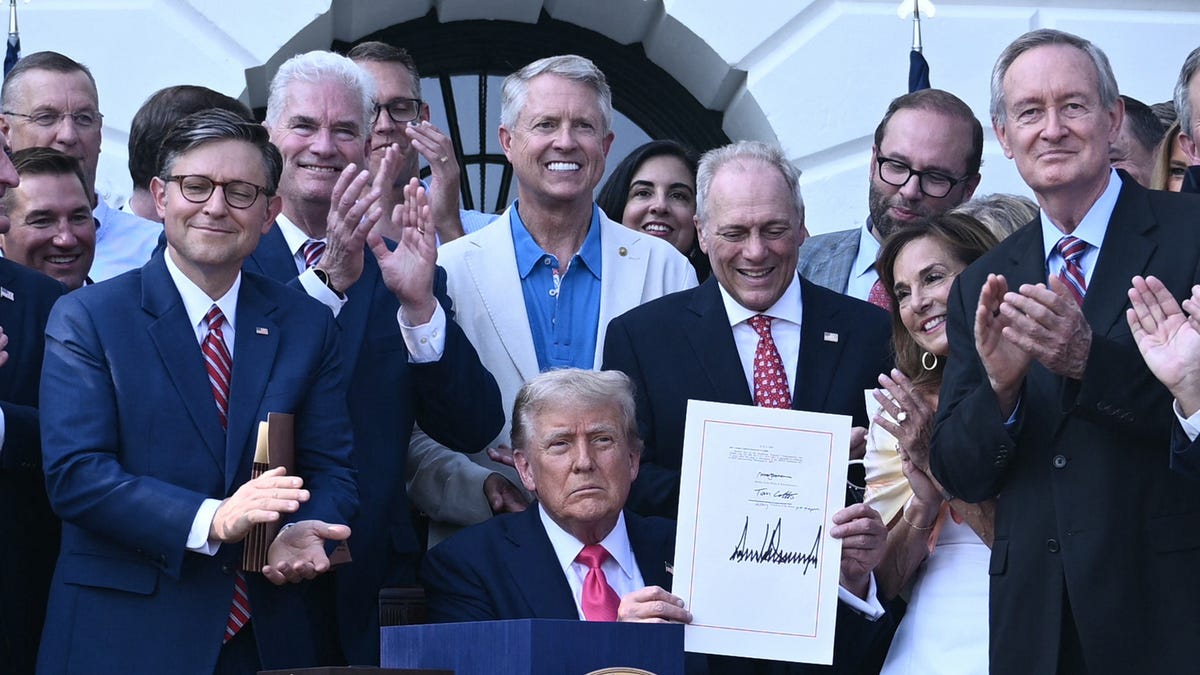
 Iowa1 week ago
Iowa1 week ago8 ways Trump’s ‘Big, Beautiful Bill’ will affect Iowans, from rural hospitals to biofuels
-
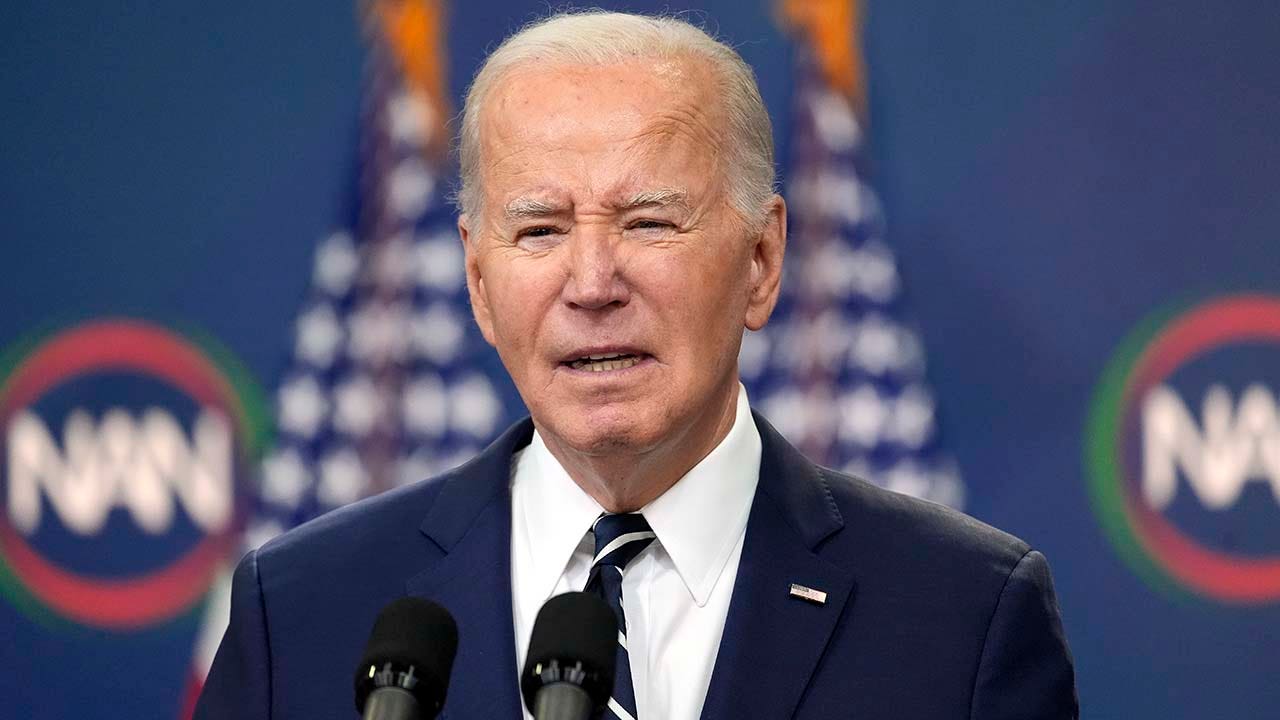
 Politics1 week ago
Politics1 week agoConstitutional scholar uses Biden autopen to flip Dems’ ‘democracy’ script against them: ‘Scandal’
-

 Movie Reviews1 week ago
Movie Reviews1 week agoMovie Review: SUPERMAN
-

 Politics1 week ago
Politics1 week agoDOJ rejects Ghislaine Maxwell’s appeal in SCOTUS response
-

 Health1 week ago
Health1 week agoNew weekly injection for Parkinson's could replace daily pill for millions, study suggests
-

 Culture1 week ago
Culture1 week agoTest Your Knowledge of French Novels Made Into Musicals and Movies
-
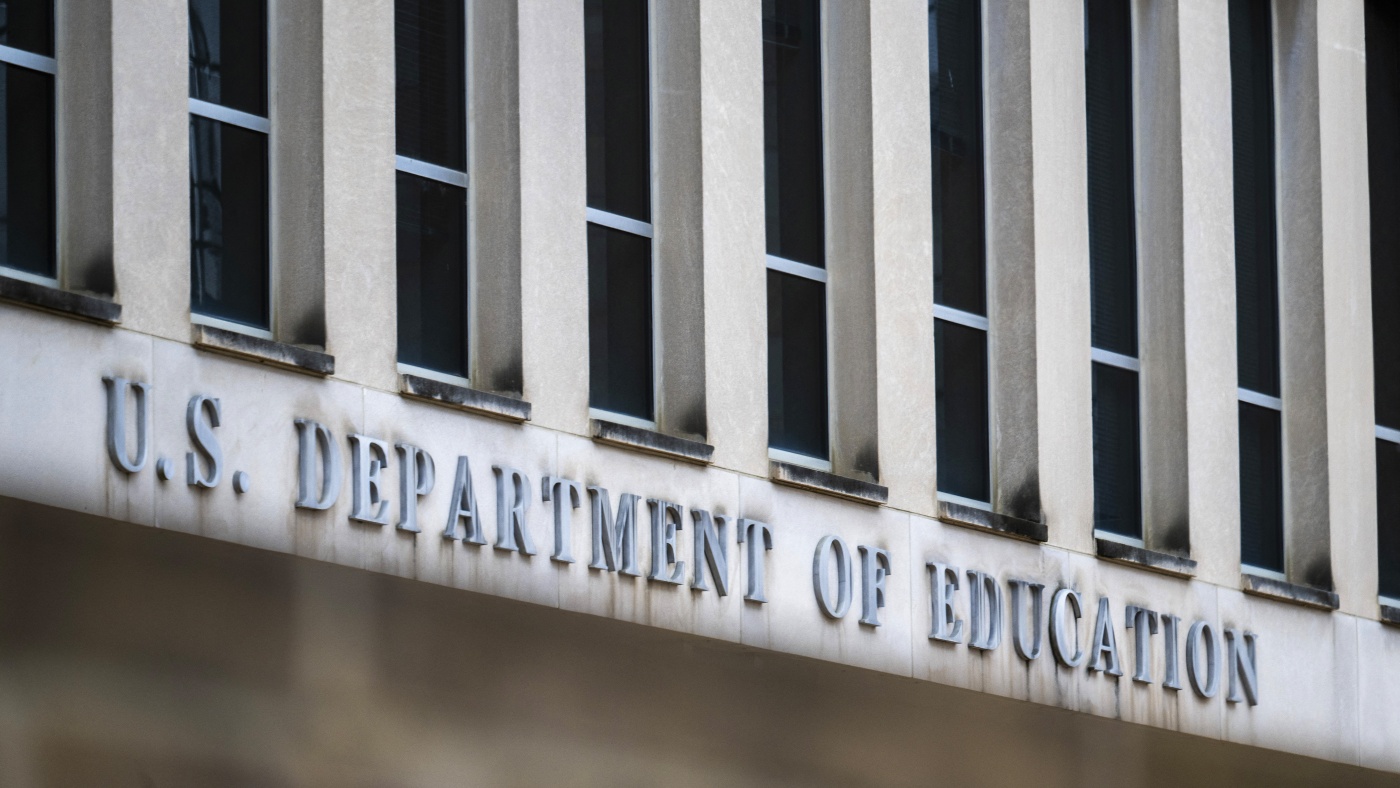
 News1 week ago
News1 week agoSCOTUS allows dismantling of Education Dept. And, Trump threatens Russia with tariffs

























